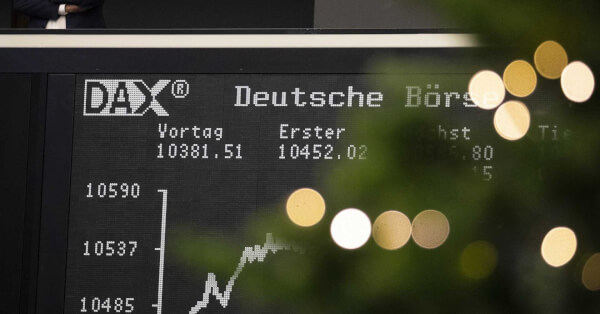-
Asian markets showed mixed performance after Trump announced new 25% tariffs on all steel and aluminum imports. The Hang Seng surged 1.5% led by tech stocks, while China's Shanghai Composite rose 0.4%. Japan's Nikkei edged 0.1% lower, and Australia's ASX 200 fell 0.4%.
-
Trump's latest trade measures include plans for reciprocal tariffs to match rates levied by each country, to be announced Tuesday or Wednesday. The EU warned it's ready to respond "within an hour," while Canada, the largest US aluminum supplier, expressed concerns about the impact on integrated supply chains.
-
Chinese tech stocks rallied despite escalating trade tensions, with Baidu jumping 3.5% and Alibaba gaining over 4%. Beijing is reportedly preparing retaliatory measures targeting major US tech companies with antitrust probes, with Apple, Nvidia, Broadcom, and Synopsys potentially in focus.
-
The dollar strengthened 0.2% as markets priced in a slower pace of Fed rate cuts amid tariff-driven inflation concerns. The Japanese yen fell 0.4% to 151.98 despite recent hawkish BOJ comments, while the yuan weakened past 7.3 per dollar to a three-week low.
-
Oil prices rose modestly with Brent at $75.06 and WTI at $71.40, snapping three weeks of declines. Gold approached record highs near $2,881 per ounce as heightened trade tensions boosted safe-haven demand. China's central bank continued gold purchases for the third straight month.
-
Japan posted a record current account surplus of ¥29.3 trillion ($193 billion) in 2024, driven by strong overseas investment returns amid yen weakness. However, both trade and services balances remained in deficit.
-
Federal Reserve Chair Powell is set to testify before Congress on Tuesday and Wednesday, with markets focused on his views regarding trade policy impacts and inflation outlook. January CPI data release coincides with his second day of testimony.
-
Trump also announced plans to halt penny production, citing manufacturing costs of 3.7 cents per coin. The move follows recommendations from Musk's Department of Government Efficiency team, which identified cost inefficiencies in Treasury operations.

🚨DE40 ร่วง 3% 📉

📊 ตลาดเด่นวันนี้🚨 ราคาน้ำมันพุ่ง 5% กดดัน Wall Street

📅 ปฏิทินเศรษฐกิจ: ยูโรโซน (Eurozone)

สรุปข่าวเช้า 3 มี.คใ


